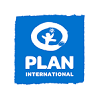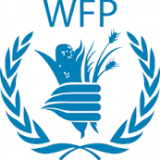Qualified female candidates are particularly encouraged to apply
WFP has zero tolerance for discrimination and does not discriminate on the basis of HIV/AIDS status
WFP does not charge any fees from applicants at any stage in the recruitment process
ABOUT WFP
The World Food Programme is the world’s largest humanitarian agency fighting hunger worldwide.
In emergencies, we get food to where it is needed, saving the lives of victims of war, civil conflict and natural disasters. After the cause of an emergency has passed, we use food to help communities rebuild their shattered lives.
WFP is part of the United Nations system and is voluntarily funded. Born in 1961, WFP pursues a vision of the world in which every man, woman and child has access at all times to the food needed for an active and healthy life. We work towards that vision with our sister UN agencies in Rome — the Food and Agriculture Organization (FAO) and the International Fund for Agricultural Development (IFAD) — as well as government, other UN and NGO partners.
On average, WFP reaches more than 80 million people with food assistance in 82 countries each year. More than 11,000 people work for WFP, most of them in remote areas, directly serving the hungry poor.
ORGANIZATIONAL CONTEXT
The head of area office is based in Arua, and manages Arua and Gulu Field Offices in Uganda. The position reports to the Deputy Country Director (head of operations).
JOB PURPOSE
To lead and manage a WFP Area Office to ensure the effective and efficient management of human and financial resources and delivery of WFP programs and activities. A large emphasis is placed upon building and maintaining relationships with local governments, UN agencies and other partners in the area to reinforce WFP’s visibility.
KEY ACCOUNTABILITIES (not all-inclusive)
- Formulate substantial parts of WFP-wide programme policies in line with both organisational strategy and the practical realities of operating in the field; or translate WFP-wide programme policy into Regional/Country level practices, programme guidance and implementation modalities and operations, to ensure a clear and strong connection between HQ and field operations.
- Provide advice and support to COs delivering a complex portfolio of programmes to clarify ambiguities and ensure that policy and programme operations are consistent with WFP policies, Executive Board decisions, and other relevant guidance.
- Provide technical advice or mobilise technical expertise, on a wide range of programme and policy issues including assessment and analysis, the choice of objectives, activities, transfer modalities and appropriate food products, the deployment and testing of innovative approaches and the development of strategies to support government efforts to reduce hunger and malnutrition.
- Assist senior stakeholders of governments and other partners in identifying where food assistance can be usefully employed and provide support and technical expertise for the planning, formulation and implementation of food assistance programmes to strengthen government and community ownership and effectiveness of food security and nutrition programmes at national and sub-national level
- Develop operational partnerships and maintain established strategic partnerships to identify opportunities for collaborative approaches and initiatives that improve assistance packages and support advocacy work.
- Enhance WFP’s leadership status in different forums on subjects related to food security, nutrition, livelihoods, resilience, engagement in humanitarian, transition and development contexts and other related issues through direct participation, briefings, information products and other materials.
- Manage or oversee operational research and evidence building on issues relevant to food assistance.
- Manage or oversee preparation and dissemination of timely analytical and critical reports, publications, and a variety of information products or proposals for internal or external use.
- Advocate for resources for a broad portfolio of WFP projects, including clearly articulating the need for food assistance and related programme opportunities, and follow up on the resource situation of projects including commodity and cash availability.
- Advice and support the development of functional training in areas of expertise to enhance the capacity of WFP staff and partner to design and deliver effective food assistance programmes.
- Lead, motivate and develop a substantive team to enable high performance.
- Ensure the best use of assigned financial resources for achievement of set objectives within a significant budget.
- Take responsibility for incorporating gender perspectives in all areas of work, to ensure equal participation of women and men.
- Contribute to Country Office Emergency Preparedness i.e. early warning, risk analysis, and contingency planning in order to respond to humanitarian crises and needs.
4Ps CORE ORGANISATIONAL CAPABILITIES
Purpose
- Understand and communicate the Strategic Objectives: Utilizes understanding of WFP’s Strategic Objectives to communicate linkages to team objectives and work.
- Be a force for positive change: Proactively identifies and develops new methods or improvements for self and immediate team to address work challenges within own work area.
- Make the mission inspiring to our team: Identifies opportunities to further align individual contributions with WFP’s mission of making an impact on local communities.
- Make our mission visible in everyday actions: Helps colleagues to see the link between their individual tasks and the contributions of their unit’s goals to the broader context of WFP’s mission.
People
- Look for ways to strengthen people’s skills: Is able to identify, support and encourage focused on-the-job learning opportunities to address gaps between current skillsets and needed future skillsets for WFP.
- Create an inclusive culture: Recognizes the contributions of teammates, and encourages contributions from culturally different team mates to recognise the value of diversity above and beyond just including it in programming for beneficiaries.
- Be a coach & provide constructive feedback: Provides and solicits ongoing constructive feedback on strengths and development opportunities to help develop individual skills, whilst also helping others identify areas for improvement.
- Create an “I will”/”We will” spirit: Sets clear targets for self and others to focus team efforts in ambiguous situations (e.g., unprecedented issues and/or scenarios).
Performance
- Encourage innovation & creative solutions: Thinks beyond team’s conventional approaches to formulate creative methods for delivering food aid and assistance to beneficiaries.
- Focus on getting results: Maintains focus on achieving individual results in the face of obstacles such as volatile or fragile environments and/or organizational roadblocks.
- Make commitments and make good on commitments Takes personal accountability for upholding and delivering upon team’s commitments and provides assurance to stakeholders.
- Be Decisive: Demonstrates ability to adjust to team’s plans and priorities to optimize outcomes in light of evolving directives, while also responding quickly in high-pressure environments, such as in emergency settings.
Partnership
- Connect and share across WFP units: Demonstrates an understanding of when and how to tactfully engage other units in conversations on impact, timing, or planning.
- Build strong external partnerships: Networks regularly with key external partners using formal and informal opportunities to understand each partner’s unique value proposition, and to build and strengthen relationships.
- Be politically agile & adaptable: Demonstrates ability to adapt engagement approach in the context of evolving partner circumstances and expectations.
- Be clear about the value WFP brings to partnerships: Demonstrates ability to articulate to internal and external audiences the value that individual contributions and immediate teams bring to partnerships.
FUNCTIONAL CAPABILITIES
| Capability Name | Description of the behaviour expected for the proficiency level |
| Strategy & Planning | Demonstrates advanced knowledge of national and international socio-political issues, WFP programmes and overall country strategic objectives. Plans, directs and expertly manages the implementation of programmes in area of responsibility to ensure effective and timely delivery of aid to beneficiaries. |
| Operations | Utilises understanding of country operations and supply chain network in the local area to address WFP’s operational challenges (e.g., dangerous transportation conditions, supplier scarcities, changing tax laws). Proactively manages work streams across functions and ensures their effective operational delivery. Ensures optimal operational processes and procedures are in place within country operations that support broader inter-agency efforts. |
| Resource | Advocates for WFP’s fundraising initiatives, taking ownership of the achievement of organisation wide targets, innovating new approaches and coaching other leaders. Applies knowledge of financial planning, budgeting and forecasting to contribute to the development of budget setting parameters, overseeing and holding ultimate accountability for delivery of budgets within area of responsibility. |
| Diplomacy | Leverages expert negotiation, networking and diplomacy skills to build relationships with other agencies, donors and local government officials to drive operational activities which are of strategic importance to WFP’s mission, within their area of operation. Maintains and strategically builds contacts with key stakeholders providing quantifiable evidence of WFP’s impact in building sustainable food programmes. Uses formal and informal opportunities to leverage networks to influence outcomes that are aligned with WFP’s mandate. |
| People Management | Engages with and manages people so that they are highly effective in their roles and teams. Uses human resource strategy, processes and practices and open communication, to create a culture of high-performance, accountability and empowerment. Is able to resolve conflicts between people, influence other’s behaviour and align people toward a common vision. Upholds WFP’s values and approaches to the effective management of people, and uses human resources support to continuously improve their people management practices. |
STANDARD MINIMUM QUALIFICATIONS
Education: Advanced University degree in Economics, International Development, Social Sciences or other related field, or First University degree with additional years of related work experience and/or training/courses.
Language: Fluency (level C) in English language. Intermediate knowledge (level B) of a second official UN language: Arabic, Chinese, French, Russian, Spanish, and/or WFP’s working language, Portuguese.
DESIRED EXPERIENCES FOR ENTRY INTO THE ROLE
- Has developed, or supported in the development of, multi-discipline work plans to support the achievement of WFP strategic aims within a defined area.
• Has gained experience in field operations, preferably in a hardship duty station or emergency situation.
• Gained experience of analysing political situations, assessing risk accurately.
• Has gained experience managing mid-size financial budgets, balancing multiple priorities effectively.
• Has experience leading a mid-size to large team to ensure the effective delivery of objectives.
• Participated in a vendor/government/ partner negotiation.
• Participated in an emergency operation/ development programme, preferably in a hardship duty station.
• Has experience with security co-ordination and compound management within a mid-size area.
TERMS AND CONDITIONS
11 months contract.
More Information
- Job City Arua





